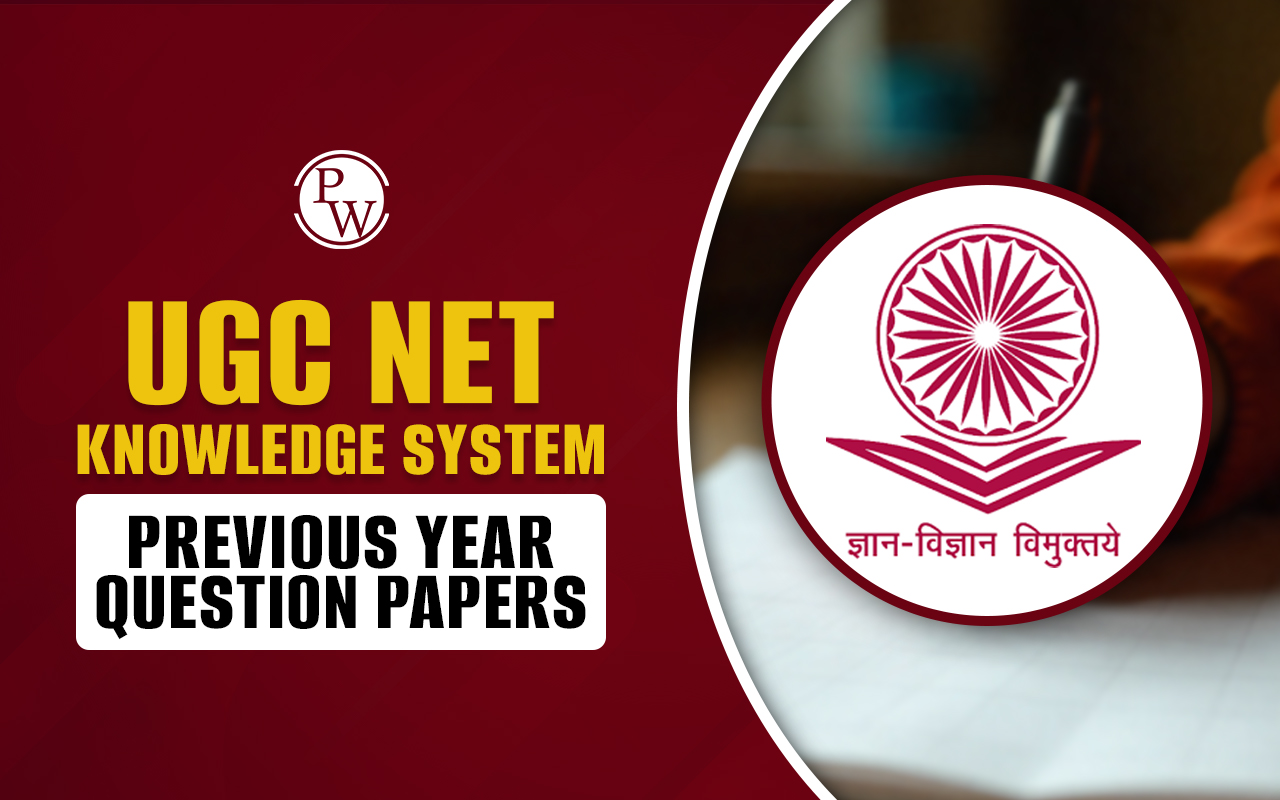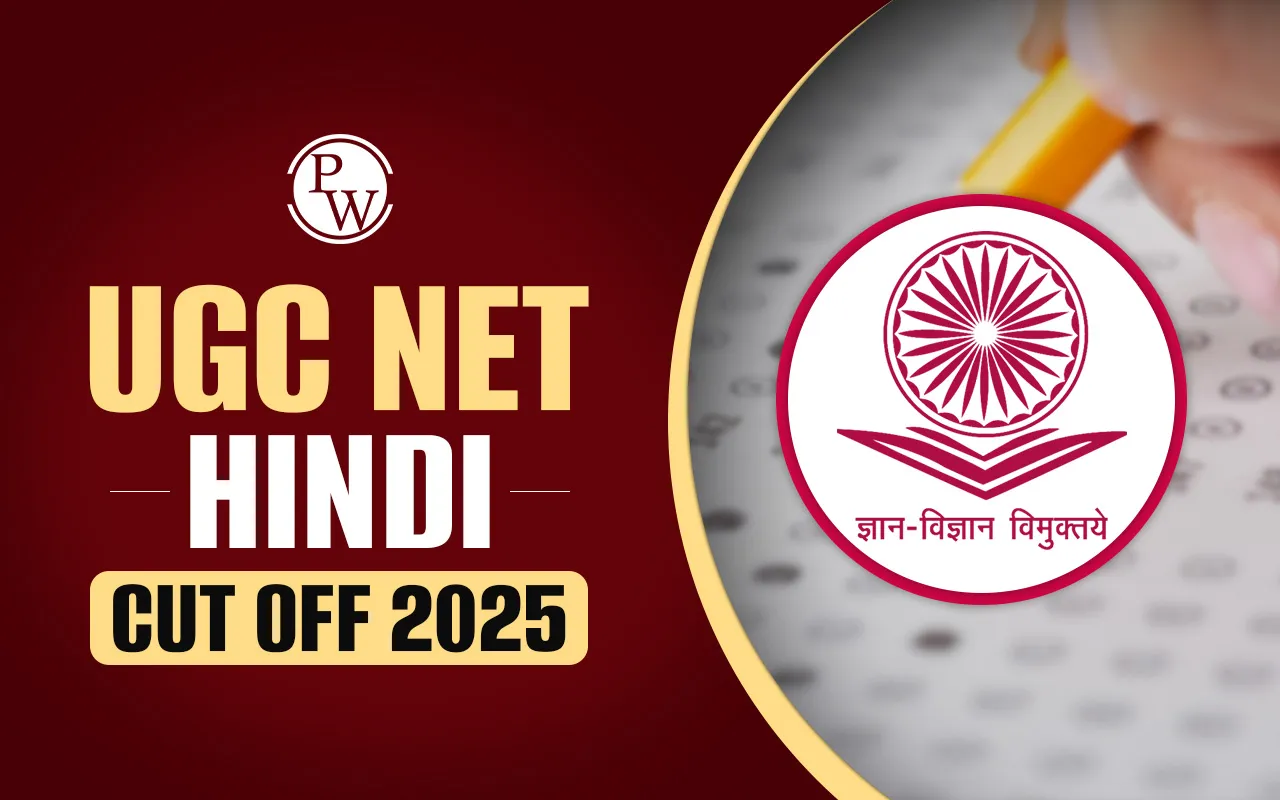
UGC NET Museology And Conservation Syllabus 2024: The University Grants Commission (UGC) has released the UGC NET Museology & Conservation Syllabus 2024 on its official website. If you want to become a Junior Research Fellow (JRF) or Assistant Professor in Museology & Conservation, you should carefully review the updated syllabus and exam pattern. This will help you perform well in the UGC NET Museology & Conservation Exam 2024.
UGC NET Museology & Conservation Syllabus 2024
The National Testing Agency (NTA) announced the UGC NET 2024 Notification on its official website on April 20, 2024. The UGC NET 2024 Exam will take place on June 18, 2024, using an OMR-based format. To prepare well for the UGC NET 2024 Museology & Conservation exam, candidates should first understand the UGC NET Museology & Conservation Syllabus 2024 and Exam Pattern. This will give you a clear idea of the exam's structure and format, helping you to prepare effectively.UGC NET Museology & Conservation Syllabus 2024 Overview
The National Testing Agency (NTA) will hold the UGC NET 2024 exam on June 18, 2024. This national exam takes place twice a year to select candidates for Assistant Professor and Junior Research Fellowship (JRF) positions. Here's an overview of the UGC NET exam.| UGC NET Museology & Conservation Syllabus 2024 Overview | |
| Exam Name | UGC NET 2024 |
| Conducting Body | National Testing Agency (NTA) |
| Post Category | UGC NET Museology & Conservation Syllabus 2024 |
| UGC NET Exam Date 2024 | 18th June 2024 |
| Exam Level | National |
| Mode of Exam | OMR Based Mode |
| Medium of Exam | English and Hindi |
| Time Duration | 3 Hours |
| Number of Papers and Total Marks |
|
| Negative Marking | No Negative Marking |
| Official Website | https://ugcnet.nta.nic.in/ |
UGC NET Museology & Conservation Syllabus 2024 PDF
The UGC NET Museology & Conservation Syllabus 2024 PDF is a crucial resource for those getting ready for the UGC NET 2024 exam. You can easily download the UGC NET Museology & Conservation Syllabus 2024 PDF in both English and Hindi by clicking on the provided link.UGC NET Museology & Conservation Syllabus 2024 Paper 1
The UGC NET Museology & Conservation Syllabus 2024 for Paper 1 evaluates candidates' teaching and research skills, focusing on their aptitude in these areas. Here's a breakdown of the UGC NET Paper 1 syllabus.| UGC NET Museology & Conservation Syllabus 2024 Paper 1 | |
| Unit Name | Syllabus |
| Unit-I (Teaching Aptitude) | Teaching concepts, objectives, levels; Learner characteristics; Factors affecting teaching; Teaching methods; Teaching support systems; Evaluation systems |
| Unit-II (Research Aptitude) | Research meaning, types, characteristics; Research methods; Steps of research; Thesis and article writing; ICT in research; Research ethics |
| Unit-III (Comprehension) | Reading comprehension with questions |
| Unit-IV (Communication) | Communication meaning, types, characteristics; Effective communication; Communication barriers; Mass-media and society |
| Unit-V (Mathematical Reasoning and Aptitude) | Types of reasoning; Mathematical aptitude; Number and letter series |
| Unit-VI (Logical Reasoning) | Argument structure; Deductive and inductive reasoning; Analogies; Venn diagrams; Indian logic |
| Unit-VII (Data Interpretation) | Data sources; Acquisition; Classification; Interpretation; Governance |
| Unit-VIII (Information and Communication Technology (ICT)) | Basics of ICT; Internet; Email; Digital initiatives; Governance |
| Unit-IX (People, Development and Environment) | Development and environment interaction; Environmental issues; Resources; Environmental protection acts; International agreements |
| Unit-X (Higher Education System) | History of higher education in India; Learning programs; Policies; Governance |
UGC NET Museology & Conservation Syllabus 2024 Unit Wise
The UGC NET Museology & Conservation Syllabus 2024 is structured into six units, covering various aspects of Museology & Conservation. Here is an overview of the UGC NET Museology & Conservation Syllabus 2024 Paper 2.| UGC NET Museology & Conservation Syllabus 2024 Unit Wise | ||
| Unit | Topics | Key Points |
| Unit I | Introduction to Museum and Museology | Definitions of museum types, Museology concepts, History of museums, Classification, Functions, Professional organizations, ICOM code of ethics. |
| Unit II | Collection Management | Purposes and ethics of collecting, Collection management policy, Methods of collecting and authenticating, Storage and conservation, Collection security. |
| Unit III | Documentation and Research of Collections | Purposes and ethics of documentation, Documentation policy, Types of documents, Digital documentation, Object numbering, Documentation standards, Collection research. |
| Unit IV | Museum Exhibitions | Exhibition as communication, Exhibition policy and ethics, Types of exhibitions, Exhibition components, Exhibition text and lighting, Planning and designing exhibitions, Visitor circulation, Evaluation. |
| Unit V | Museum Education, Interpretation, and Publications | Role of museums in education, Learning activities, Museum education policy, Accessibility for disabilities, Extension services, Museum publications, Feedback methods. |
| Unit VI | Conservation of Collections - Part I | Definitions and terminology, Material properties, Ethics of conservation, Causes of deterioration, Preventive conservation, Environmental control, Integrated Pest Management, Housekeeping practices. |
UGC NET Museology & Conservation Exam Pattern 2024
The UGC NET Museology & Conservation Exam pattern for 2024 is essential for understanding the exam structure. This table clearly outlines the number of questions, maximum marks, and marking scheme for both Paper 1 and Paper 2. Knowing these details will help you prepare effectively for the exam.| UGC NET Museology & Conservation Exam Pattern | ||
| Aspects | UGC NET Paper 1 | UGC NET Paper 2 |
| Number of Questions | 50 | 100 |
| Maximum Marks | 100 | 200 |
| Marking Scheme | Two marks for each correct answer | Two marks for each correct answer |
| Negative Marking | No negative marking | No negative marking |
UGC NET Museology & Conservation Syllabus 2024 FAQs
What is the UGC NET Museology & Conservation Syllabus 2024?
The UGC NET Museology & Conservation Syllabus 2024 is the updated curriculum for the UGC NET exam, covering topics in Museology and Conservation for candidates aspiring to become Junior Research Fellows (JRF) or Assistant Professors.
Where can I download the UGC NET Museology & Conservation Syllabus 2024 PDF?
You can download the UGC NET Museology & Conservation Syllabus 2024 PDF in both English and Hindi from the official UGC website.
When will the UGC NET 2024 exam be conducted?
The UGC NET 2024 exam will be held on June 18, 2024.
What is the format of the UGC NET Museology & Conservation 2024 exam?
The UGC NET Museology & Conservation 2024 exam will be conducted in an OMR-based format.
How many papers are there in the UGC NET 2024 exam?
The UGC NET 2024 exam has two papers. Paper 1 is the same for everyone, while Paper 2 focuses on Museology & Conservation.
Talk to a counsellorHave doubts? Our support team will be happy to assist you!

Check out these Related Articles
Free Learning Resources
PW Books
Notes (Class 10-12)
PW Study Materials
Notes (Class 6-9)
Ncert Solutions
Govt Exams
Class 6th to 12th Online Courses
Govt Job Exams Courses
UPSC Coaching
Defence Exam Coaching
Gate Exam Coaching
Other Exams
Know about Physics Wallah
Physics Wallah is an Indian edtech platform that provides accessible & comprehensive learning experiences to students from Class 6th to postgraduate level. We also provide extensive NCERT solutions, sample paper, NEET, JEE Mains, BITSAT previous year papers & more such resources to students. Physics Wallah also caters to over 3.5 million registered students and over 78 lakh+ Youtube subscribers with 4.8 rating on its app.
We Stand Out because
We provide students with intensive courses with India’s qualified & experienced faculties & mentors. PW strives to make the learning experience comprehensive and accessible for students of all sections of society. We believe in empowering every single student who couldn't dream of a good career in engineering and medical field earlier.
Our Key Focus Areas
Physics Wallah's main focus is to make the learning experience as economical as possible for all students. With our affordable courses like Lakshya, Udaan and Arjuna and many others, we have been able to provide a platform for lakhs of aspirants. From providing Chemistry, Maths, Physics formula to giving e-books of eminent authors like RD Sharma, RS Aggarwal and Lakhmir Singh, PW focuses on every single student's need for preparation.
What Makes Us Different
Physics Wallah strives to develop a comprehensive pedagogical structure for students, where they get a state-of-the-art learning experience with study material and resources. Apart from catering students preparing for JEE Mains and NEET, PW also provides study material for each state board like Uttar Pradesh, Bihar, and others
Copyright © 2025 Physicswallah Limited All rights reserved.









